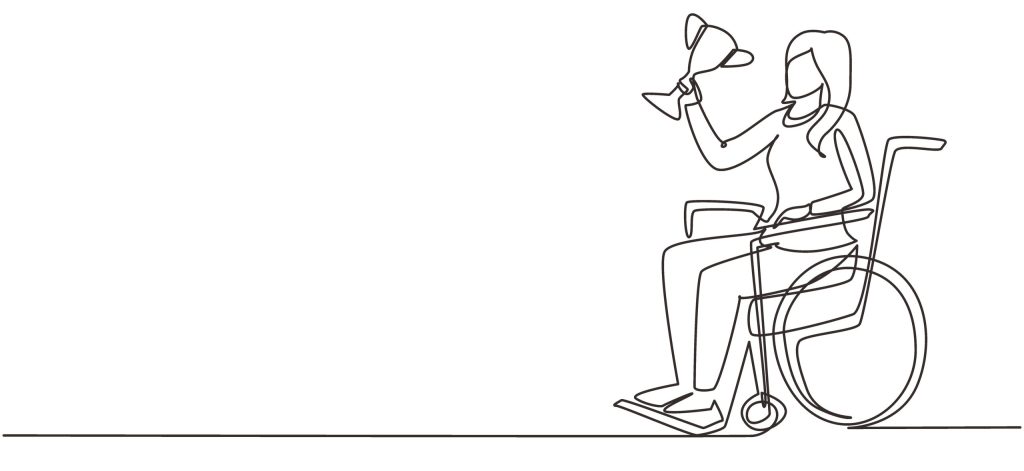Case Studies and Reflective Tools
Case Study: Differing Views of Disability

In the last several years, the state of Massachusetts has seen an influx of Haitian migrants. Many of the resettlement organizations working with the migrant families immediately refer them to early intervention services as their circumstances place their children in the state’s “at-risk” category. Though some of the children end up being discharged from EI soon after referral because they meet all expected developmental milestones, there are other children that continue in EI as they show signs of Autism or other disabilities. Several EI providers I worked with shared that they feel frustrated that some Haitian families will not engage in conversations with their providers about the possibility of developmental disabilities. Some of the mothers even stopped conversations about Autism by leaving the room. A couple of these mothers then stopped attending EI sessions at all. This made me curious about the families’ views on Autism.
To learn more about how to more effectively broach the topic of Autism with families, the EI clinical director and I asked a few Haitian cultural brokers to help us better understand general Haitian cultural beliefs about Autism and disability. We learned that in some (not all) Haitian communities, disability is viewed as a punishment from an angry spirit or the lord, a hex from an enemy, or the result of a family curse. For mothers in these communities, having a child with a disability carries great stigma. Some fathers in rural Haiti will leave their wives after the birth of a child with a disability in an effort to show the community they are not the cursed party. Our cultural brokers recommended that we tread lightly when talking with families about disability diagnoses with families who have these beliefs. The cultural brokers recommended that instead of pushing for medical diagnosis and labels, we frame conversations around developmental interventions that will help prepare children for success in school. They shared that academic success tends to be a widespread value in Haiti.
A couple of the early interventionists I worked with had strong emotional reactions to this view of disability. These emotional reactions brought with them judgmental feelings that the providers were struggling to move past. As part of processing these feelings, we examined our own cultural views of disability. While processing, we realized that there are commonalities between the American Medical Model of disability and the Haitian belief that disability is punishment. Both belief systems characterize disability as a burden. The main difference in the two belief systems is how we make meaning of the perceived burden of raising a child with the disability. In the U.S., many of the White Christian families I work with have said things like “God wouldn’t give me more than I could handle!” I’ve had strangers and acquaintances say to me “You must be so patient” or “You’re really doing the lord’s work” when they find out that I work in disability services.
Questions for Reflection
- What are your beliefs about disability? How do they align or contrast with the views of disability presented in this case study?
- When you read about how some parents frame disability as a punishment or the result of a curse, what was your initial reaction?
- What beliefs and values contributed to your initial reaction?
- What cultural messages did you get from your family, community, and the media about disability when you were growing up?
- How were people with disabilities treated in your schools?
- How accessible are the public spaces in your community?
- How were people with disabilities portrayed in the books, shows, movies, and social media content you were exposed to growing up?
- How has the way people with disabilities are portrayed in the media changed in your lifetime?
- How do you think that media portrayals have affected your views of disability?
- In the United States, the media often highlights “inspirational” stories of people with disabilities “overcoming” their disability to do things like walk down the aisle at their wedding or becoming a paralympic athlete. What does it tell us about our dominant cultural views on disability?
- If you were working with a family that held this kind of belief, what would you need to process or reframe for yourself to avoid being judgemental about their beliefs?
- Several of the Haitian cultural brokers we spoke with recommended focusing less on a label and more on supporting the children’s developmental goals and helping the children gain skills for school readiness. How would this advice inform the way you talked with the families, the way you wrote IFSP goals, and the activities you did during home visits?
Resources
Videos
I’m Not Your Inspiration, Thank You Very Much: Stella Young
Articles
What It Means To Commemorate Disability Pride
Conceptualizing Disability: Three Models of Disability

